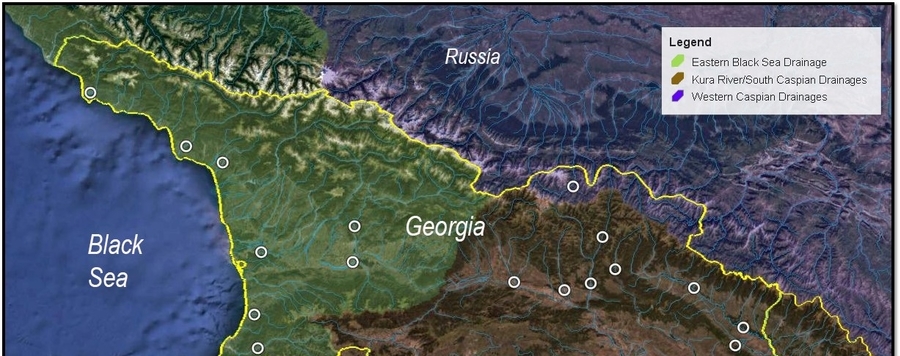
First molecular assessment of the freshwater fish diversity of Georgia
In this study, we provide a first estimation of the molecular diversity of the freshwater fishes of Georgia. In addition to field collections, we integrated DNA barcode data obtained from recent works and public databases (BOLD and NCBI GenBank). Currently, the DNA barcode reference library for freshwater fishes of Georgia comprises 352 DNA barcodes for 50 species, 36 genera and 15 families (52% of total Georgian freshwater fish diversity), from which 162 DNA barcodes belonging to 41 species were newly generated as part of this study. A total of 22 species are reported from the Caspian Sea basin and 31 from the Black Sea basin. Amongst the studied taxa, seven species were found with large interspecific divergences (> 2%) while 11 species were found to share DNA barcodes within our dataset. In the course of the study, we found the first evidence of the existence of Gymnocephalus cernua (Linnaeus, 1758) and also confirm the second occurrence of invasive Rhinogobius lindbergi (Berg, 1933) in Georgia. Based on the evaluation of currently-available barcode data for Georgian fishes, we highlighted major gaps and research needs to further progress DNA-based biodiversity studies in Georgia. Though this study lays a solid base for DNA, based biodiversity assessment and monitoring approaches, further efforts within the recently started CaBOL (Caucasus Barcode Of Life) project are needed to obtain reference data for the species still lacking DNA barcodes.






